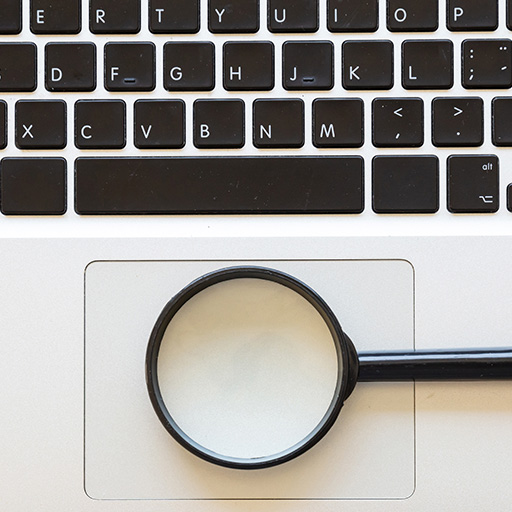Polygraph (Lie Detector) Testing as a Private Investigation Tool in British Columbia

Author: Thomas A. Dolo – Private Investigator, Vancouver British Columbia
Polygraph and Lie Detectors - Introduction
Polygraphs, or so-called Lie Detectors are scientific measuring tools carefully designed to give a private investigator an understanding of the truthfulness of a recipient through a series of tests that study the physiological response to a battery of questions.
We’ve all seen the movies: investigators strap down a sweating suspect who knows it’s just a matter of a few questions and the jig is up. The polygraph is so deeply rooted into our entertainment culture that it is seen in almost every genre imaginable – even comedies.
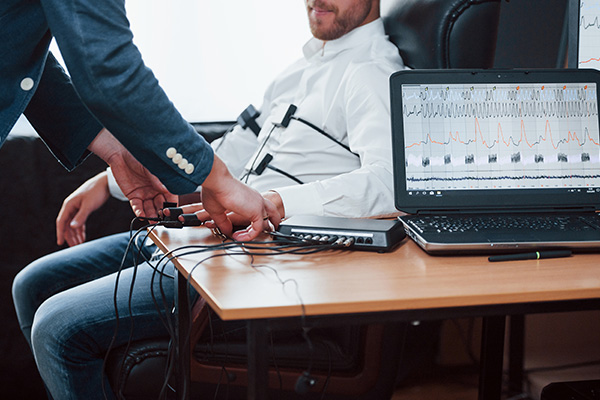
As a serious precision investigation tool, it means the private investigator needs years of experience studying and understanding how heart rate, blood pressure, respiration, skin conductivity, and even subtle changes in body language as relate to both the recipient and the questions being asked.
It’s part science and part art.
How Does a Polygraph Work?
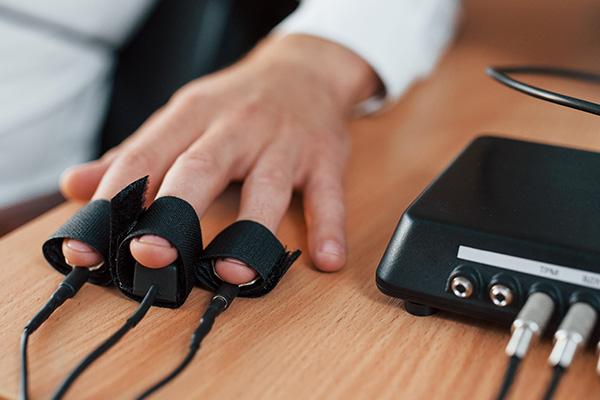
To determine the accuracy of truthfulness, the private investigator deduces deceptions by comparing and assessing subtle physiological responses to structured questions.
Investigations using polygraph tests, whether for corporate hires, law enforcement, criminal investigation, risk mitigation, security clearances, or government, consist of computerized hardware and software that analyzes indicators of autonomic arousal.
These assessments include heart rate and blood pressure, respiration, cardiovascular activity, and galvanic skin and electrodermal responses.
Electrodes are attached to the subject’s fingers and pneumographs are wrapped around the subject’s chest. The electrodes and pneumographs are then connected to the computer system.
Lie Detectors and What Types of Questions are Asked
The private investigator begins the investigation with a pretest. The polygraph pretest explains the process, the types of questions that will be asked, a series of questions, and a review of each answer.
These questions are used to calibrate the polygraph equipment, ensure the subject understands the questions, and to reinforce the subject’s apprehension of attempting to lie.
Each examination is unique. The investigator will ask a series of Control Questions and Related Questions.
Control questions refer to the subject’s known past and are often broad and vague. An example could be “Have you ever lied to get out of a speeding ticket?”
Related questions are more specific and directly related to the investigation at hand. An example could be “Were you in the stolen car?”
How Accurate are Polygraph and Lie Detector Tests?
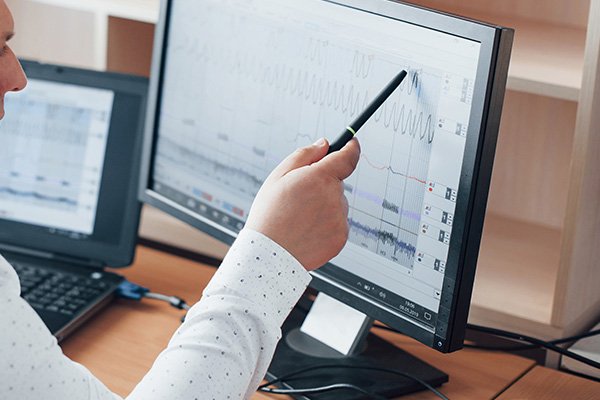
According to the American Polygraph Association, polygraph and lie detector tests are 87% to over 90% accurate.
But asking about the accuracy of the polygraph is wrong. More important are the skills and experience of the private investigator. Private investigators like Tom Dolo of Vancouver, British Columbia and those hired by Dolo Investigations are highly trained, highly skilled and have decades of experience in polygraph investigation.
Experienced investigators recognize key patterns in relation to responses and are better able and equipped to help interpret measurements and meaning.
For example, a subject’s increased physiological feedback when asked Related Questions could be a strong indication of a lie. And at the same time, increased feedback when asked Control Questions could be an indication of truthfulness.
The History and Future of Polygraph and Lie Detector Tests and Equipment
Lie detectors and lie detection tests used by investigators date as far back as ancient Greece.
The first recognized mechanical device is said to have been developed by French physiologist Étienne-Jules Marey in 1858. His device attempted to record the subject’s response to sudden stimuli like sharp noises.
In 1890, Italian criminologist Cesare Lombroso invented a unique glove that measured blood pressure. It was assumed that a subject’s blood pressure was related to guilt and would change during the investigation.
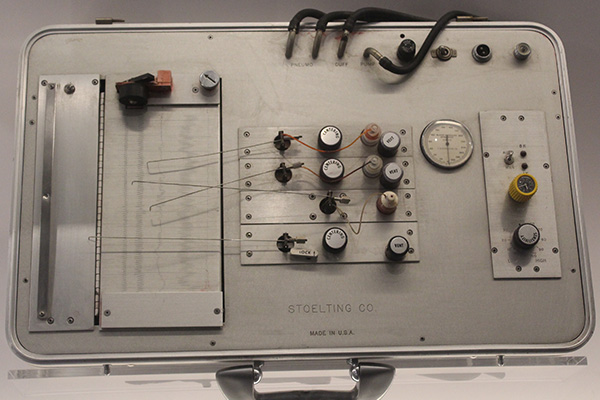
The polygraph we’re used to seeing in movies was invented by cardiologist James Mackenzie in 1906. Originally developed to measure and monitor the cardiac response of patients during surgery, the polygraph plotted arterial and venous pulses as lines on a roll of paper.
You can learn more about the history of the polygraph and lie detector from Ken Alder’s book “The Lie Detectors: The History of an American Obsession”, available on Amazon.
As for the future of polygraph and lie detector tests, Artificial Intelligence is the new frontier. Researchers are developing A.I. technology that can investigate and interview a subject either live in-person or through video conferencing software like Zoom that can access subtle changes in eyes, voice, gestures and even posture that are proving a potential for even greater accuracy.

